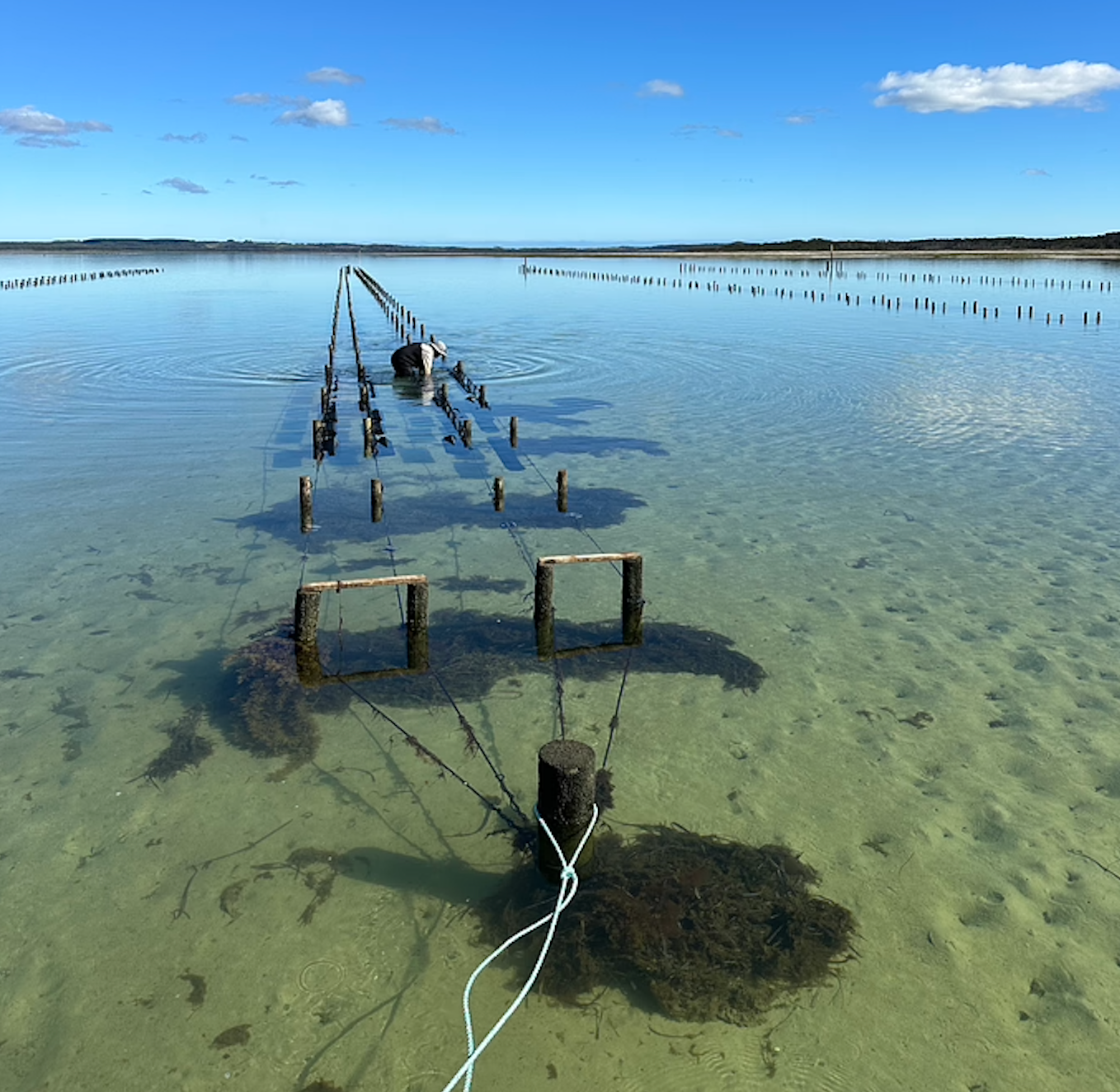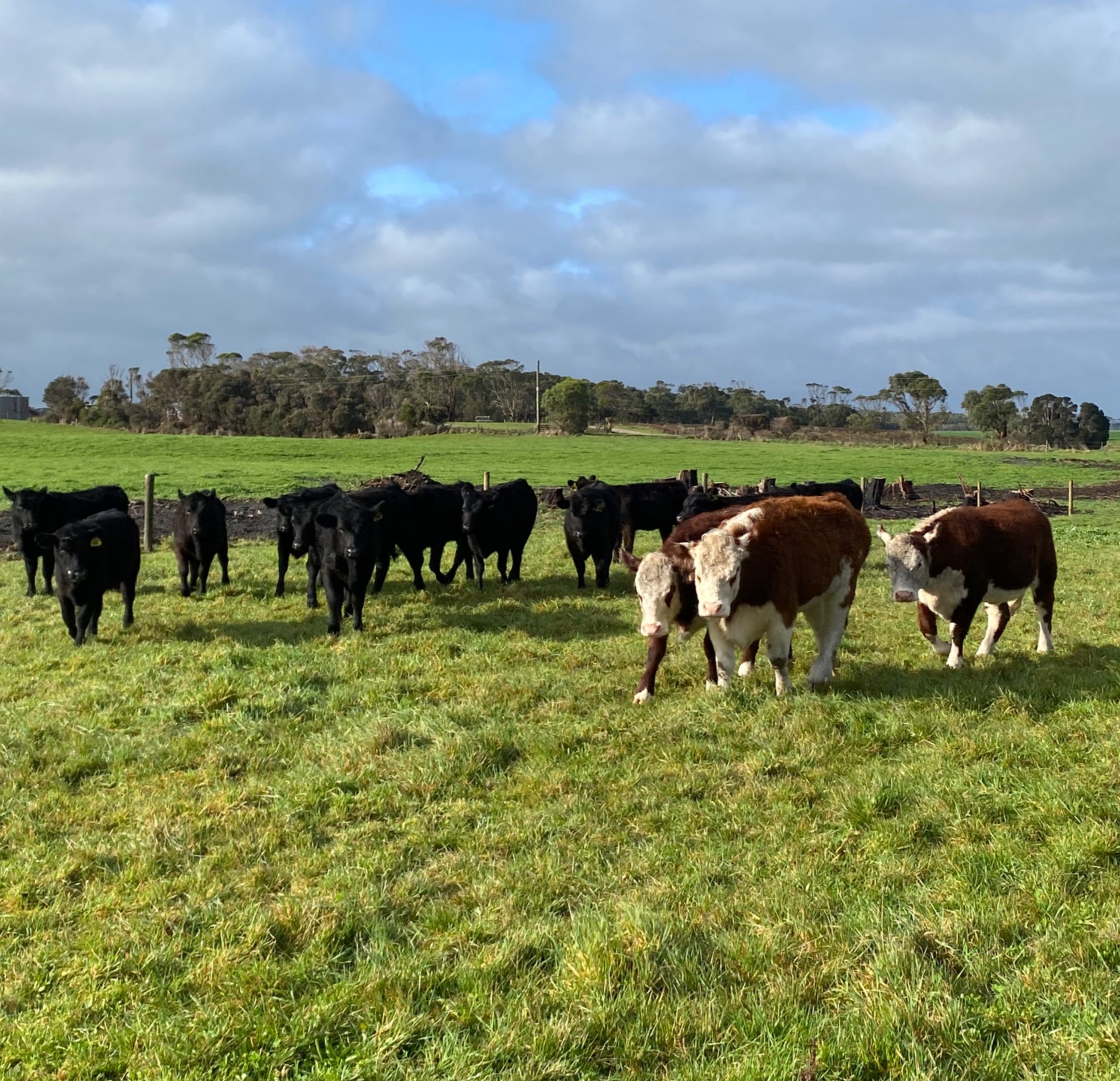January NEWSLETTER
In this edition:
What Does Resilience Mean to You?
Upcoming Events - Bus Tour & Webinars
From a Farmer
New Cohort - Beekeepers!
Mental Health
Recordings of Previous Events
What’s New on the Portal
Resilient Farming Tas Program provides Tasmanian farmers one-on-one coaching, in-person and online events, and an online resource platform to help them address risks to resilience and harness potential opportunities for their farm. To learn more about the program and sign up head to: www.tasfarmingfutures.com.au/resilient-farming-tas
what is resilience
What is Resilience to You?
To me, resilience is being able to stay afloat in the tough times - financially and emotionally, with recovery back to ‘the good place’ not too long a journey. I also hope the plans I put in place will prevent falling into as many storms as I might have before.
Our team of coaches from the RFT program have discussed this question with dozens of farmers and farm staff, with similar but varied responses each time when planning for the future. We hear their challenges and opportunities, and work through them with their team to address these in their Farm Business Resilience Plan.
Those who have completed their plan can now react more quickly to challenges, seize opportunities and make informed decisions at the right time.
The following encompass many of the topics raised and now addressed in their plans:
If you, or someone you know, would benefit from the Resilient Farming Tas program, please share this information or reach out to us; contact Cassie Tickner-Smith or visit Resilient Farming Tas.
from a farmer
Far West Oysters:
“Oyster leases need a land base, and we have a few ideas for improving this block but want to make sure we are planning the right way,” said Stephanie Sutcliffe of Far West Oysters.
It was an extremely windy day when some of Resilient Farming Tas team arrived to discuss future plans for Stephanie and Henry Hewish’s land at Montagu. Stephanie led Allison Clark and Belinda Hazell to a shed housing some oyster equipment to escape the wind and exchange meaningful ideas.
Farming both oysters and beef, Stephanie outlined current improvements, including fencing, and shared her thoughts on other needs. Topics such as water management, pasture care, and shelter were discussed as part of a possible property management plan. The discussion also touched on the couple’s farming goals, their business structure, and how their oyster and beef farming operations shaped these decisions.
Over several months, through conversations that explored the business’s history, future vision, and risks and opportunities, a clear plan began to take shape.
“Working through the process with Allison gave Henry and me a chance to identify what truly mattered for making our business more resilient,” Stephanie said. “The structured risk assessment process helped us focus on immediate priorities. We moved ahead with our livestock plans, but what really made a difference was discussing how to refine our business structure to align with our vision for the future.”
With an upcoming visit from Stu Beams of Safe Farming Tas planned, Stephanie is optimistic about receiving valuable insights into both their water and land-based activities. This will help maintain confidence of working in their isolated Tasmanian operations, knowing they’re taking the right steps.
Completing their Action Plan early also enables Stephanie to participate in the 2025 series of workshops and mentoring, further strengthening their business and future plans.
New cohort - Beekeepers!
Are you a beekeeper? We want to hear from you!
Beekeepers are vital to Tasmania’s food future. These businesses often offer a range of products and services, including pollination, workshops, honey and honey or bee related byproducts.
The RFT Program would like to provide opportunities for beekeepers to progress through the program together (as a ‘cohort’) to build business resilience. In our experience, networking, sharing experiences and knowledge and developing a community are important aspects of resilience, especially for small to medium scale enterprises.
We would also like to work with industry partners, including beekeeping associations, to develop a workshop and webinar series that caters directly to beekeepers. We can cover a range of topics of interest to beekeepers such as business and finance, decision-making support, LISTmap and alternative floral resources and biosecurity planning among any other areas of interest, to support participants building their Farm Business Resilience Plan.
If you are a beekeeper or industry partner and would like to know more about what the Program can offer you, reach out to Sasha Brightman.
checking in
Mental health check-in
It’s silly season for a lot of farming folks at the moment – sheep are being shorn, hay is being baled and carted, fruit is being harvested and we’re on the cusp of grapes and apples being ready to pick among all the other jobs that get done over the summer period. Now is an important time to check in with yourself and your farm team to make sure everyone is doing okay with the added stress.
Rural Alive and Well are still out and about and available for a chat. You can contact them via their phone line (1800 729 827) or through their website.
recordings
Recordings from Past Events
Our Youtube channel shows several videos about the program for sharing with people considering joining, but we also have recordings from our past online and in-person events available to those with a direct link; typically for participants. You can find these links on the Resource Portal or contact your coach about an area of interest.
New on the portal
New on the Resource Portal
Participants of the Resilient Farming Tas Program can access an online classroom of resources collated by our expert coaches. With more than 30 topics relevant to Tasmanian farms the resources provide practical guidance and tools to support your farm's resilience and success.
Some recent additions include:
New resources added to Technology & Innovation (Precision Ag) and Regenerative Ag.
Upcoming events: Regularly updated list of relevant events and training opportunities.
Recordings from RFT webinars: Watch the recordings from any of our webinars if you couldn’t make it live or want to revisit information.
Updates to the Farm Business Resilience Plan templates.
If you’re looking for something in particular, ask your coach, or check out this useful video:
The Farm Business Resilience Program is jointly funded through the Australian Government’s Future Drought Fund and the Tasmanian Government’s Rural Business Resilience Package.








